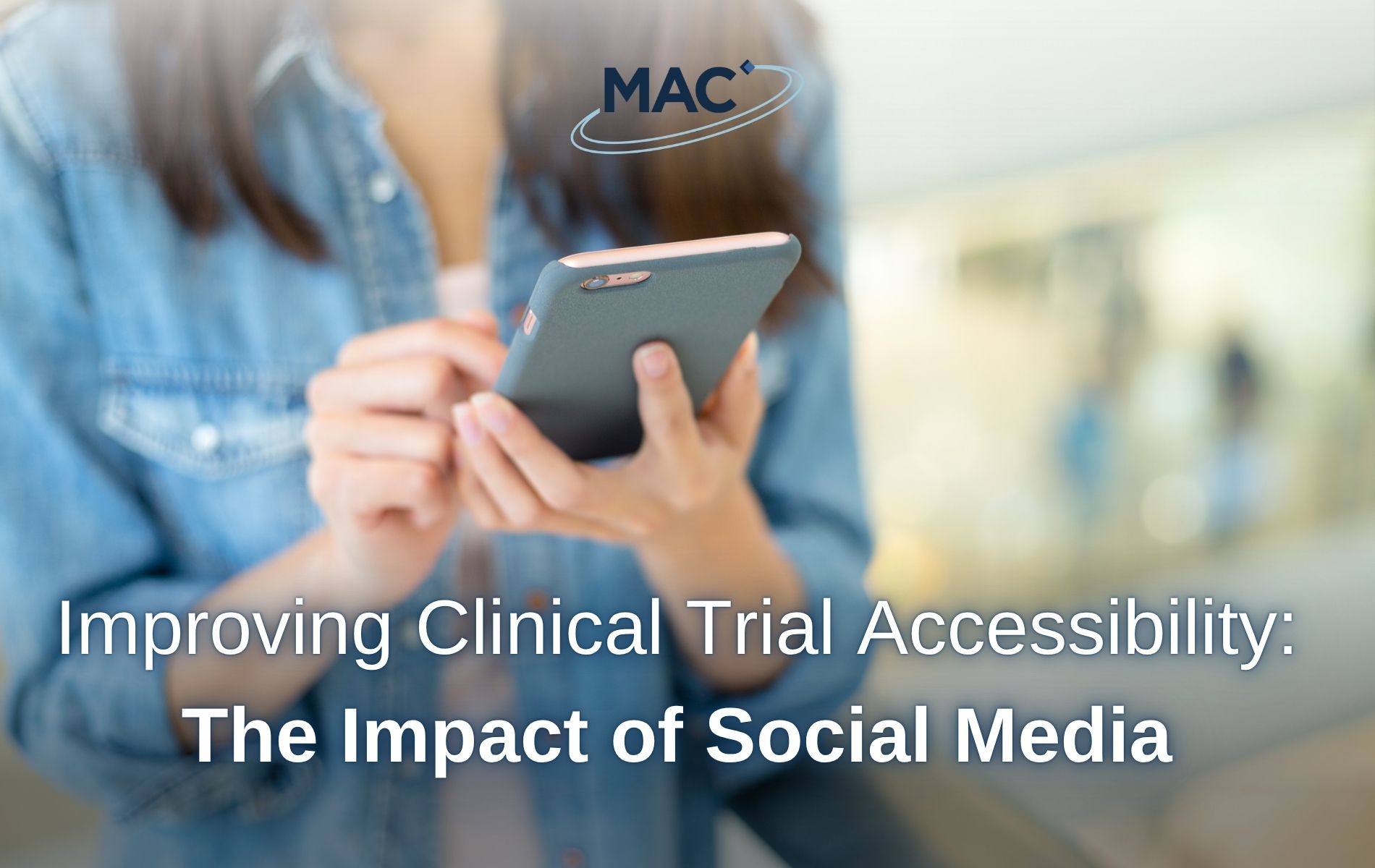In the last decade, the way people learn about clinical trials has changed dramatically. Before online promotion became mainstream, information about research opportunities was commonly limited to posters in hospitals, word-of-mouth referrals, and listings on institutional websites. Thanks to the incorporation of social media in participant recruitment, clinical trials are often more visible, accessible, and inclusive than previously1.
Barriers to clinical research participation
Traditional methods for finding volunteers rely heavily on patient referrals from healthcare providers, print advertising, and direct mail. An emphasis on these methods leaves many people unaware of research opportunities or unsure how to get involved. Traditional barriers to participation include:
- Limited outreach
Traditional methods can only reach a fraction of the population. This means that outside of academic and hospital settings, many people who may be interested in taking part in a clinical trial are left unaware of available research opportunities1.
- Lack of diversity
Due to this limited outreach, traditional methods are frequently hindered by geographic, socioeconomic, and language constraints2. This can limit the diversity of the volunteers, and lead to research that is not as generalisable to the real world.
- Misconceptions about clinical trials
Clinical trials can appear inaccessible, intimidating, or dangerous to potential volunteers3. While this remains a significant barrier to getting involved, most traditional participant recruitment methods do not offer a way for you to ask questions before signing up. This can be a deterrent if you may have been interested in taking part.
These challenges often lead to trials not getting enough volunteers to take part, delays in the research, and results that do not reflect the true diversity of the real-world population4.
The impact of social media on clinical trial recruitment
The introduction of social media and other digital platforms has revolutionised how you might access information about clinical trials. This is demonstrated through:
- Increased outreach
Social media platforms like Facebook, Instagram, TikTok, and X allow researchers to reach tens of thousands of people with tailored messaging. This means that you are more likely to be aware of research opportunities that are relevant to you and may be able to take part5.
- Improved accessibility
You can often learn about a study, check your eligibility, and sign up from your phone. This can reduce the effect of logistical and socioeconomic barriers for volunteers, potentially increasing participation in under-represented groups6. Additionally, digital platforms tend to avoid complex medical jargon or diagrams, which can make clinical research more approachable if you don’t have a medical background.
- Increased communication
Social media allows you to connect with researchers and have your concerns addressed with no sign-up required. By engaging directly with communities, researchers can build trust and clarify misconceptions. Influencers, patient advocates, and community leaders can also help spread information.
By removing or reducing the effect of some of the barriers to research, social media can help increase the diversity of study populations5. This leads to more generalisable clinical research, and therefore, more equitable healthcare for everyone. As technology continues to evolve, so will the ways we connect people with research, breaking down the barriers even further.
Interested in taking part in a clinical trial?
MAC Clinical Research is dedicated to testing new and improved treatments for a broad range of medical conditions such as depression, social anxiety, knee osteoarthritis, COPD and more.
If you decide to take part in a study with MAC, you will be closely monitored by our research doctors and nurses, and your GP will be fully informed of your participation. MAC’s clinical trials have been approved by the MHRA and reviewed by an independent ethics committee. We also rely on and comply with UK General Data Protection Regulation (UK GDPR) to protect your personal data.
Eligible participants will receive all study-related assessments and treatments free of charge, plus transport will be provided or travel expenses reimbursed. You may also receive payment for your time and commitment, depending on the study. To find out more about our upcoming studies and to register your interest in taking part in a clinical trial, visit our current studies webpage.
References
1 Lindus Health – The Impact of Social Media on Clinical Trial Recruitment
2 The Association of Clinical Research Professionals – Social Media Marketing and its Vital Role in Improving Clinical Trial Recruitment
3 Advarra – Top Barriers to Participation in Clinical Trials
4 Lifebit – Clinical trial recruitment digital case study: 7 Powerful Successes
5 Mayo Clinic Magazine – Digital Technologies Improve Clinical Trial Recruitment
6 Kaplan and Friesen (2017) – Health disparities and clinical trial recruitment: Is there a duty to tweet?




